The Climate Agenda: Cooling Tucson through green driving
Tucson is 11 degrees warmer than it was 100 years ago ... But we can change that by changing our behavior ... Constable in trouble.
A lot of people like the idea of driving less and integrating other types of eco-friendly options into their commute, but logistics or fear gets in the way.
One local group is hoping to change that by offering a series of classes teaching people how to navigate the bus system and Tucson’s pedestrian and bike-friendly pathways, as part of their larger goal of combatting Tucson’s record-breaking summer heat.
Tucson is 11 degrees warmer on average than it was 100 years ago and last summer was the hottest yet, according to experts. They say that a big reason for the increase is the way we’ve built the city over the years, with concrete sidewalks, driveways and walkways; gravel yards; and a lack of tree cover, greenery and water harvesting opportunities.
Asphalt parking lots and roads also generate a lot of heat, as do emissions from the vehicles that travel on those roads.
Tucson’s Watershed Management Group’s “Cool Tucson 5 Degrees” initiative challenges residents to create cooling infrastructures in neighborhoods, conserve water and think about transportation through the framework of sustainable mobility, or “green driving.”
A 2018 study in the Journal of Applied Meteorology and Climatology found that by taking steps to reduce vehicle emissions and increase “cool infrastructure,” (trees, green corridors and nature-based solutions) cities can reduce air temperatures by 5 to 7 degrees.
That’s why WMG is encouraging residents to think about sustainable mobility, which focuses on improving the health of the community and environment through transportation and land-use practices.
“One of the big questions and concerns is who are we to tackle mobility? We’re a watershed and environment-based organization,” said Co-founder and Senior Director Catlow Shipek. “But I think it’s more like how can we not address mobility. Streets and transportation take up so much of our landscape and affect watershed health in so many ways.”
Shipek and his wife have been living car-free for six years, relying on buses, bikes and walking for their daily transportation needs. And while they don’t expect everyone else to give up their cars, Shipek said that simply driving cars less often can have a big impact.
“It boils down to our urban landscape and how it affects environmental health and community health here more than anything,” Shipek said. “Just making that connection for people has been really important.”
But WMG staffers know that if they’re going to ask people to make this kind of change, they first have to “walk the talk” and set the stage at work and in their own homes, Shipek said.
Before the pandemic, WMG would hold annual challenges where they’d encourage staff to go without a car for one, two or three months, but that became something of a moot point when everyone began working from home.
Shipek decided to resurrect the focus on sustainable mobility when staffers began to return to work in-person and he took their interns and docents through some activity-based learning.
“Half of them had never been on the bus, either because they didn’t know it was free or they were fearful,” Shipek said. “So we had a whole session geared towards, ‘Let’s go to Himmel Park to have a discussion and take the bus to get there.’”
The group was challenged with figuring out which bus to take and where to get on and off, and were able to learn with and from one another.
“It was really powerful,” Shipek said. “So we started doing it each year and began scaling up to engage the community.”
In January, WMG kicked off a series of events to help community members become acquainted with Tucson’s sustainable travel options, leading with an in-person session focused on exploring eco-friendly commuting options and creating a personal mobility map. Earlier this month, dozens of people (including Caitlin) tuned into the second session, which was offered virtually, to hear Shipek talk about his experience living car-free.
On Wednesday, WMG will take attendees on a bus trip during which they’ll learn about the link between public transit and environmental health. The goal is for people to see how easy it is to take a bus and to teach them how to load a bike and view the schedule and routes on apps and paper.
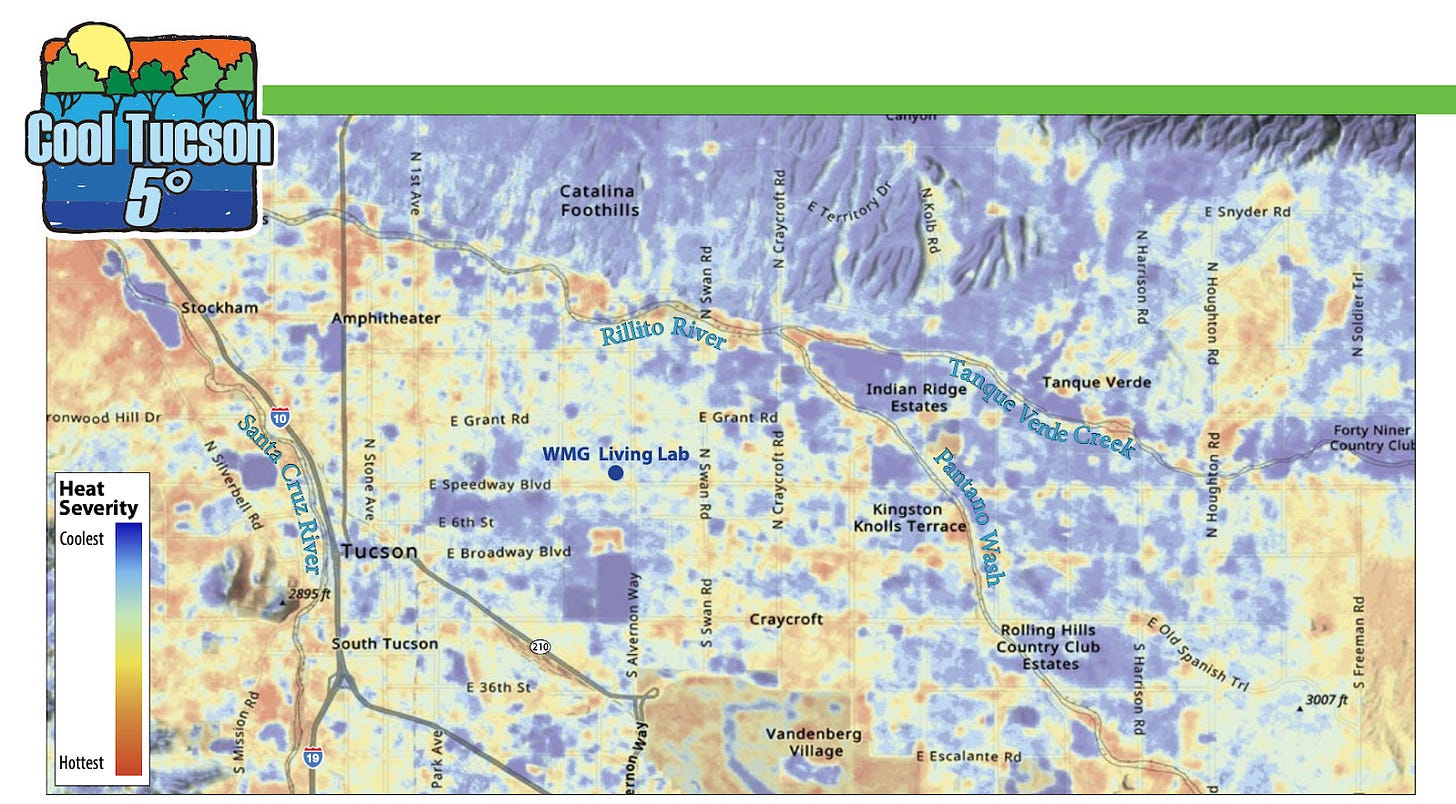
In the final event in the series, happening next month, participants will explore Tucson’s footpaths and pedestrian network and learn how to crowdsource walking opportunities and use activity heat maps and trail apps to discover walkable corridors and connectors.
But it’s not all about teaching people how to navigate the city by bus, bike and foot.
“A lot of the work we do is overcoming the stigma of taking the bus, or for bike riders, it’s the constant conflict with cars,” Shipek said.
And while data has shown that Tucson’s streets can be deadly for pedestrians and bicyclists, Shipek said that if people learn about safe routes and how to walk and ride defensively, walking or biking can actually be safer than driving and reduces the chance of being involved in an accident.
“We’re not saying no cars. We’re just saying there’s a range of options and (asking people to think about) how do we reduce our reliance on vehicles?” Shipek said. “When you choose walking, biking or busing, you’re choosing community, in a way. There are so many more ways to connect, interact and get to know the area.”
Constable in trouble: The Pima County supervisors are going to consider suspending Constable Oscar Vasquez without pay at their meeting next week, or declare his office vacant and replace him. Supervisor Adelita Grijalva added it to the agenda after the state Constable Ethics, Standards and Training Board recommended the county suspend Vasquez. He went on medical leave last April and didn’t work until at least September, without providing documentation from his medical provider, according the state ethics board. Vasquez is one of the constable candidates with a checkered past on the ballot this year, as we wrote on Thursday.
Focus on the smaller stuff: County officials should focus on making safety repairs and boost funding for healthcare at the county jail, instead of large-scale renovations or building a new jail, until they have more information, County Administrator Jan Lesher wrote in a memo to the supervisors this week. She suggested they form a new commission to see about lowering the jail’s population, Arizona Public Media’s Hannah Cree reports.
Partyline homebuying: Tucson Republican state Sen. Justine Wadsack wants to require real estate agents to tell buyers which political jurisdictions a house is located in, Capitol Media Services’ Howard Fischer reports. Real estate agents (including Wadsack herself) already tell buyers which school district the house is in, but they are not allowed to provide the political jurisdictions. Wadsack’s bill would reverse that and make it mandatory. Some lawmakers worried it would lead to “redlining.” Tucson Democratic state Sen. Priya Sundareshan worried about the “politicization of everything,” although she allowed the new measure might help people engage more with the political process.
“If they are a Democrat and want to move into a Democrat area, they should know that they’re moving into a Democrat area,’’ Wadsack said. “It would make them approaching their city council members a little easier.’’
Paper weight: Ten tons of paper are sitting in a warehouse in Phoenix, the byproduct of efforts by misguided Cochise County officials who were convinced the 2022 election was stolen, Votebeat Arizona’s Jen Fifield reports. They wanted to test out security features like watermarks, but their planning was as ill-conceived as the endeavor itself. Now they’re trying to figure out what to do with all that paper.
Celebrating history: The youngest member of the Little Rock Nine captivated attendees of a Black History Month event last week at Palo Verde High School, Arizona Sonoran News’ Antonia Muskat writes. Carlotta Walls LaNier recounted her experience as one of the first African American students to enter Little Rock’s Central High School. LaNier’s house was bombed, the first bombing directed at one of the students, but she continued to attend Little Rock High School. She eventually helped start a foundation that has given out more than $800,000 in scholarships.
Maybe call ahead next time: A congressman from Wisconsin showed up unannounced at a hotel in Tucson that houses asylum seekers. He was turned away and staff called the sheriff’s department. Now he’s raising a ruckus, KGUN’s Adam Klepp reports. Republican Rep. Tom Tiffany claims non-profits like Casa Alitas, which coordinates shelter for asylum seekers in Tucson, are the reason people immigrate. He said he purposely showed up unannounced so he could get an “unvarnished look.” Casa Alitas staff said any federal lawmaker can take a tour, as long as they make arrangements first.
Tree planting events
Watershed Management Group, Tucson Clean and Beautiful and others are hosting a tree planting party in the Las Vistas Neighborhood tomorrow from 9 to 11 a.m. TCB is collaborating with Mayor Regina Romero on the Tucson Million Trees Initiative and trying to increase equity by creating more green spaces and tree canopy in frontline and low-income communities most impacted by climate change and extreme heat.
The team will be meeting at James Thomas Park, 3200 S. Forgeus Ave. Volunteers should wear closed-toed shoes, a hat and sunscreen and bring along a refillable water bottle. TCB will supply all necessary tools, gloves and filtered drinking water. RSVP here to volunteer.
TCB is back at work planting trees on Saturday, Feb. 24 from 9 to 11 a.m. in the Western Hills Neighborhood. Volunteers will meet at James Thomas Park, and the same guidelines apply. Sign up to volunteer here.
Santa Cruz River restoration
As part of Save our Saguaros month, TCB is hosting a Santa Cruz River restoration and clean up tomorrow from 9 a.m. to noon, to celebrate biodiversity and remove invasive species from the Paseo de Las Iglesias Pima County Restoration Area.
The event aims to celebrate the biodiversity of the Sonoran Desert and Santa Cruz River Watershed and will include education about why removing invasive species (like buffelgrass) is so important to protecting native Saguaros.
The team will be meeting at 1161 West Silverlake Road and volunteers are asked to bring a water bottle with extra water and wear a hat, sunglasses and sunscreen, close-toed shoes, long pants and a shirt with long sleeves. Trash grabbers and bags, gloves, shovels and other tools will be provided. RSVP here to attend.
Post-rodeo cleanup
The city of Tucson and TCB will be hosting a post-rodeo cleanup on Friday, Feb. 23 from 8 to 10 a.m. at the YMCA on South Nogales Highway (5085 S. Nogales Highway). Staff will be posted up at check-in tables in the parking lot and ready with supplies, including sunscreen, trash grabbers, gloves and safety vests.
Participants will pick up litter and beautify the area following the Rodeo Parade. Volunteers should bring a water bottle and extra water and wear a hat, sunglasses, closed-toed shoes and long pants. Register for the event here.
Xeriscaping 101
Xeriscaping is planting with the goal of eliminating the need for irrigation using drought tolerant plants to create a biodiverse landscape. Learn the basics of xeriscaping at Green Things Nursery on Saturday, Feb. 24 at 11 a.m.
The free class includes a one-on-one session with experts who will explain how to select and plant a wide range of native cacti, shrubs and agave to create a lush, low-water environment. After the class, you can explore the nursery and stock up on all your xeriscaping needs.
Reserve a spot by emailing sales@greenthingsaz.com or calling the nursery at (520) 299-9471.
Rainwater harvesting class
The Watershed Management Group is offering a free, in-person water harvesting class on Thursday, Feb. 22 from 4:30 to 7 p.m. Instructors will teach attendees about passive and active rainwater harvesting and how to qualify and apply for Tucson’s Rainwater Harvesting Incentives Rebate Program. The course includes a tour of the water harvesting features at WMG’s Living Lab (1137 N. Dodge Blvd.), examples of successful water harvesting installations and a Q&A. Sign up here.
Upcoming meetings
Complete Streets Coordinating Council - Wednesday, Feb. 28 at 5:30 p.m.
Commission on Climate, Energy and Sustainability - Thursday, Feb. 22 at 6:30 p.m.
City of Tucson Citizen’s Water Advisory Committee - Wednesday, March 6, 2024 at noon
Oro Valley Water Utility Commission- Monday, March 11 at 5 p.m.
Tucson-Pima County Bicycle Advisory Committee- Wednesday, March 13, 2024 at 6 p.m.
We have a running story list for future editions of the Climate Agenda, but we’d love to hear your ideas. Send those to caitlin@tucsonagenda.com.




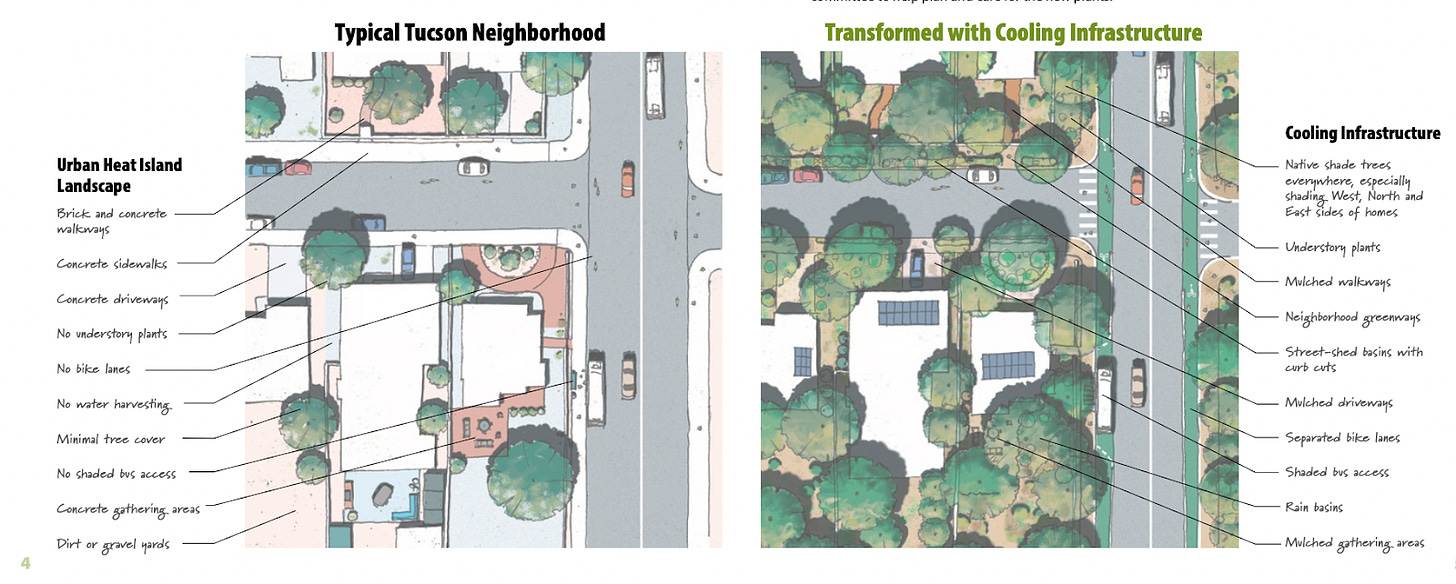
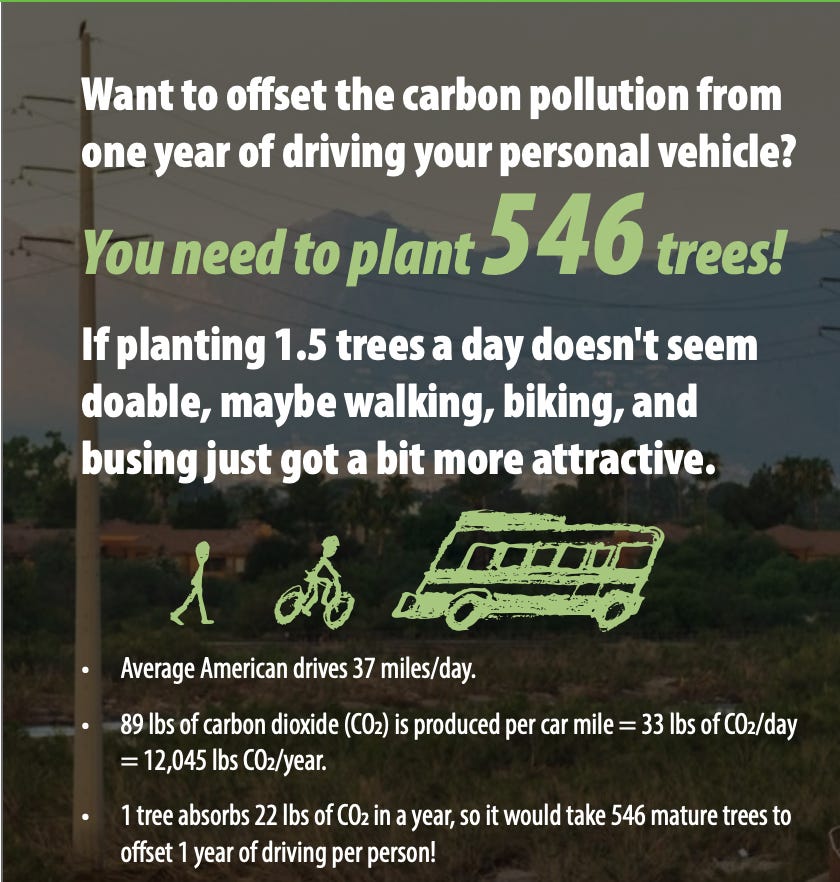


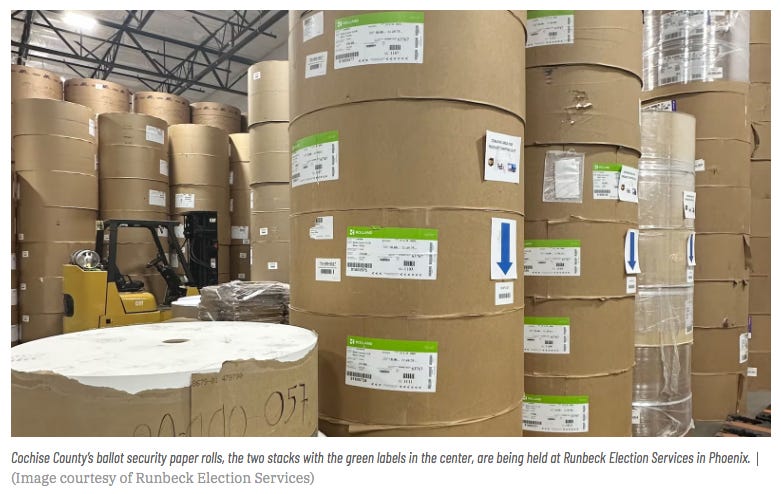

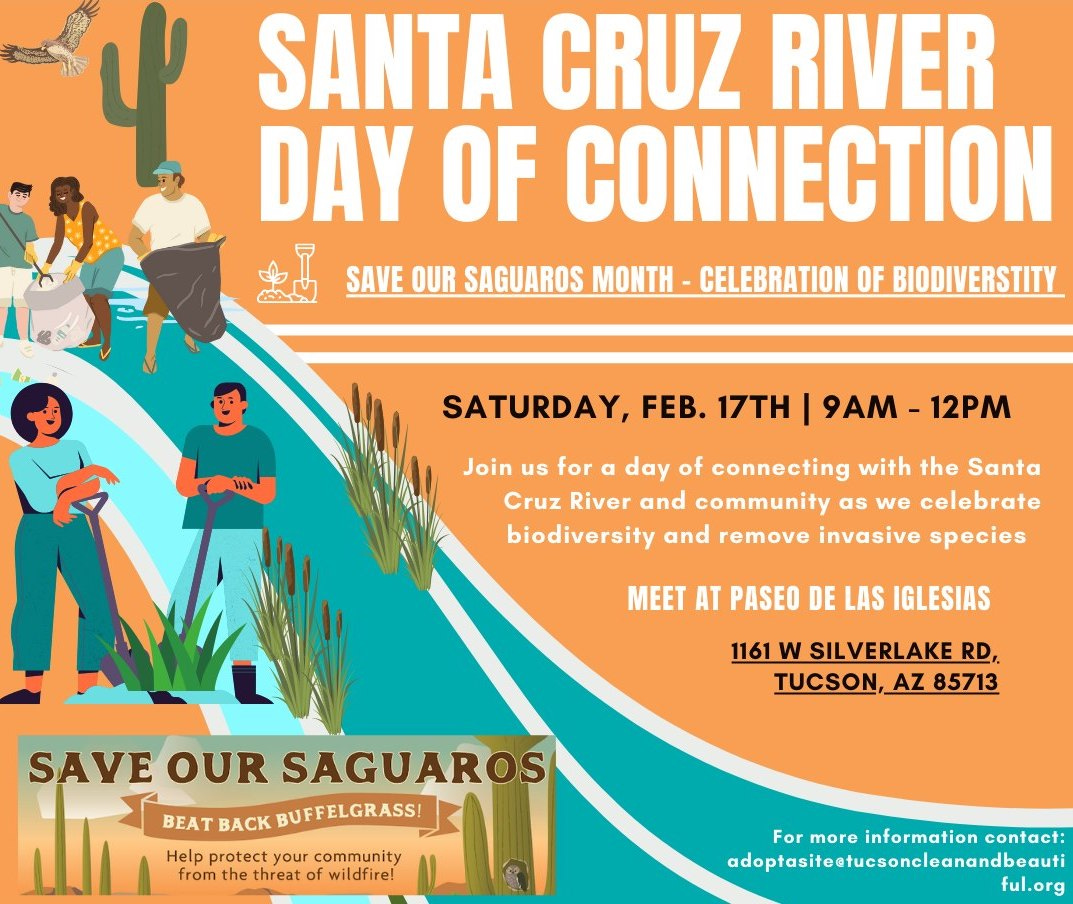
“If they are a Democrat and want to move into a Democrat area, they should know that they’re moving into a Democrat area,’’ Wadsack said. “It would make them approaching their city council members a little easier.’’
I call bull. This bill is because when Wadsack bought her current home on 6th Street (where she ACTUALLY lives) she didn't realize it was within heavily democratic districts. Thus, she had to rent a fake home to run in a more favorable district. She just wants to save other GOPs the trouble of renting a place and keeping up the pretense of living there.
Finally! Wadsack has a good idea, for I'd want to know if a complete nut job like her would be my neighbor before I purchased a home.